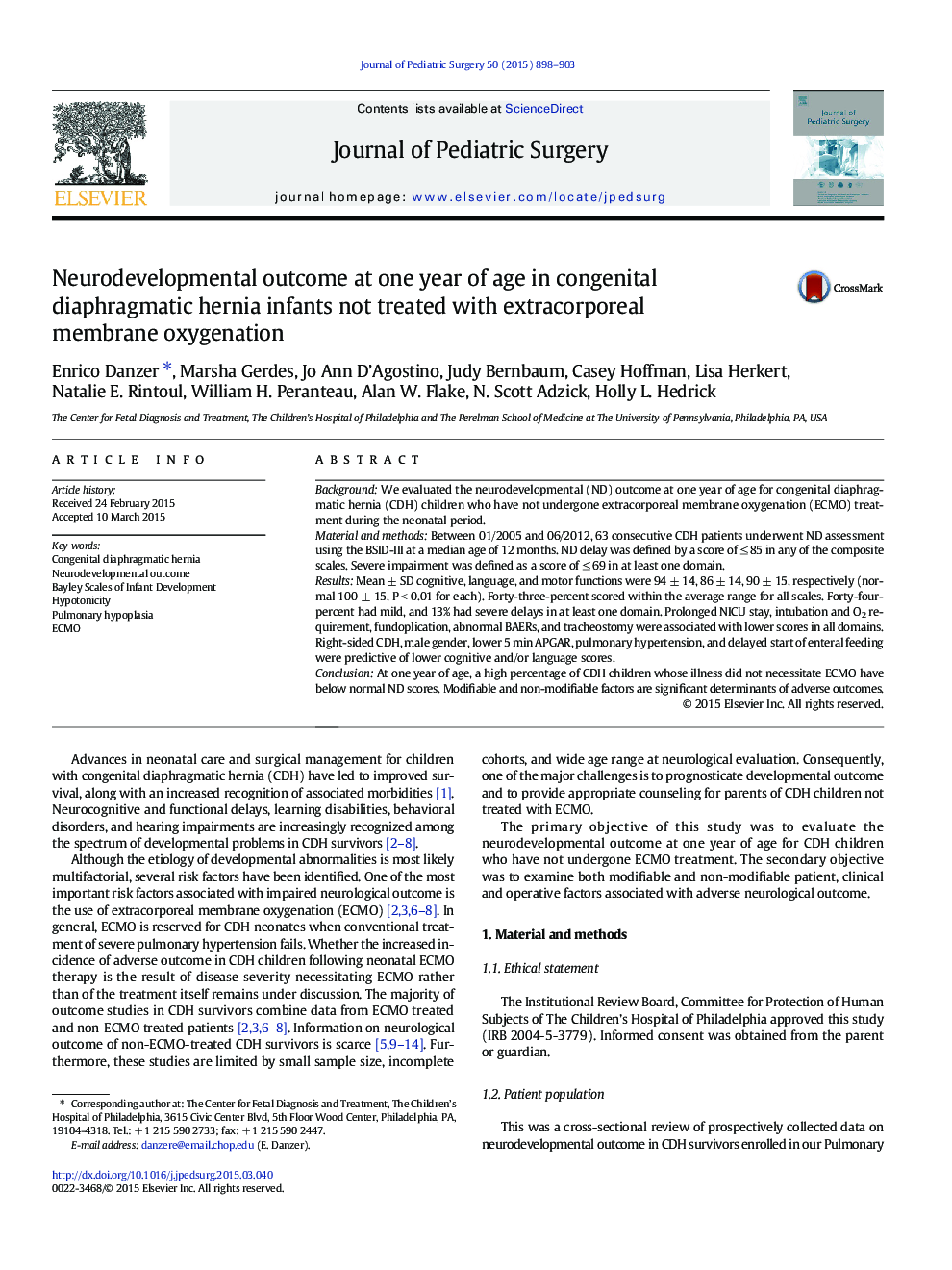| Article ID | Journal | Published Year | Pages | File Type |
|---|---|---|---|---|
| 4155032 | Journal of Pediatric Surgery | 2015 | 6 Pages |
BackgroundWe evaluated the neurodevelopmental (ND) outcome at one year of age for congenital diaphragmatic hernia (CDH) children who have not undergone extracorporeal membrane oxygenation (ECMO) treatment during the neonatal period.Material and methodsBetween 01/2005 and 06/2012, 63 consecutive CDH patients underwent ND assessment using the BSID-III at a median age of 12 months. ND delay was defined by a score of ≤ 85 in any of the composite scales. Severe impairment was defined as a score of ≤ 69 in at least one domain.ResultsMean ± SD cognitive, language, and motor functions were 94 ± 14, 86 ± 14, 90 ± 15, respectively (normal 100 ± 15, P < 0.01 for each). Forty-three-percent scored within the average range for all scales. Forty-four-percent had mild, and 13% had severe delays in at least one domain. Prolonged NICU stay, intubation and O2 requirement, fundoplication, abnormal BAERs, and tracheostomy were associated with lower scores in all domains. Right-sided CDH, male gender, lower 5 min APGAR, pulmonary hypertension, and delayed start of enteral feeding were predictive of lower cognitive and/or language scores.ConclusionAt one year of age, a high percentage of CDH children whose illness did not necessitate ECMO have below normal ND scores. Modifiable and non-modifiable factors are significant determinants of adverse outcomes.
